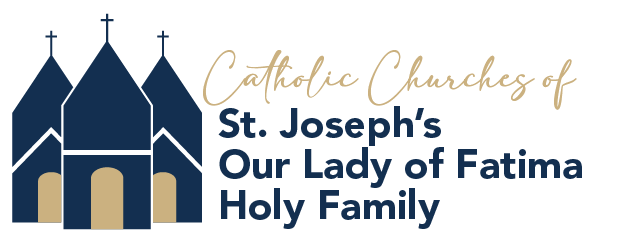Eucharistice Minister Guide
Instructions for
Eucharistic Ministers
at Mass
Becoming a Eucharistic Minister
Talk to the Pastor. A short training is required followed by the Rite of Commission (usually this will take place at a Mass.) You will be commissioned for a five year term of service, after which you will need to renew the training and be recommissioned. Each E.M. is designated to assist in a certain type of specific distribution of Holy Communion: a) at Mass; b) to the sick or homebound; c) in the hospital/nursing home for a communion service. You must be commissioned in each of these individual capacities in order to serve. In other words, if you are commissioned to serve at Mass that does not automatically make you eligible to distribute to the sick or home bound. Be sure to let your pastor know which ministries you are interested in so you can be commissioned appropriately. You may receive a commission in more than one service.
Before you minister
Please understand that an E.M. should be in a state of grace (not conscious of an unconfessed mortal sin) and fully initiated into the sacramental life of the Church. (i.e. having received the Sacraments of Baptism, Confirmation, and Holy Eucharist) and not prevented by law (in a marriage not recognized by the Church, for example.)
Before Mass
- Know your schedule in advance and find a replacement if necessary.
- Dress in a manner conducive to the ministry you are undertaking. You will be in contact with The Body and Blood of Jesus – His True Presence. Appropriate attire should be modest and should not include jeans or clothing with any logos or writing on it.
- Please sit near the front of the church and if possible near the side aisles.
At Mass
- After the Lamb of God has been sung, and as the people kneel, Extraordinary Ministers (EMs) should come up to the front of the church and stand at the side aisles. Do not cross in front of the altar – just stand in the front side aisle where you were sitting. In most cases we will need four people to distribute Communion. The Priest and Deacon, if present, are the ordinary ministers. We typically need one Eucharistic minister, if a deacon and priest are present, or 2 if there is no deacon. If you notice we are short and are able to volunteer, please come up and stand at the front of side aisle as quickly and reverently as you can.
- EMs are to wait until the priest and deacon (all clergy) have received. After they have received, EMs should proceed to the center - stop at the steps leading into the sanctuary until all EM’s arrive then, bowing together before the altar, enter the sanctuary together on the right of the altar.
- If there are people unable to come forward because of disability distribute to them first if they are in the front pew, or at the end if they are in the wheelchair sections.
- Distributing Communion say “The Body of Christ” or “The Blood of Christ”.
- Do not use people’s names “Jane… the Body of Christ”. It’s not about making a connection with the individual. It is about that person encountering Christ… Therefore anything that a minister does that is different or unusual distracts from the communicant’s reception of Jesus.
EM’s distributing the Body of Christ:
- The presider and the deacon go to the center aisle. If there is not a deacon, one EM will join the priest at the center aisle.
- If the Body of Christ drops to the floor, pick it up and either hold it in the palm of the hand holding the paten, or place it on the corporal on the altar.
If someone presents a pyx:
- If someone has a pyx and would like to bring communion to someone, they should go to the priest’s line. Please ask them to see Father after Mass if they have a question. If they come to an EM, the EM should instruct them to go to the priest.
For those who come forward for a blessing
- Blessings during the communion line have become a custom, but in this context the Church really only gives the authority to offer blessings to ordained ministers. Therefore if someone comes forward to an EM with their arms crossed (a child or adult) I would ask the EM’s to say: “May Jesus be in your heart”, or “Jesus loves you.” Please do not put out your hand or touch the individuals. When we are distributing communion we should not touch people because of the particles of the Eucharist that may be on the fingers. Also, putting out your hand or making the sign of the cross denotes a formal blessing… these are not appropriate for a lay person to do in this circumstance. Parents have authority to bless their children or their family members, but that is in a different setting. In the communion line only clergy should give a blessing. If someone wants a blessing they should go to the priest or deacon.
- There are occasions when many non-Catholics are present for Mass, (funerals, weddings, Christmas, Easter) in those cases the priest will make an announcement helping these people to know what to do during communion. If EM’s are distributing communion and someone approaches for a blessing, simply say: “May Jesus be in your heart”, or “Jesus loves you.”
After Communion
- If you distributed the Body of Christ, return the paten to the altar – placing it on the corporal or handing it to the priest/deacon, then purify your fingers in the Ablution Cup on the credence table.
- Sometimes, however, you may find that you are going to the altar with the communion cup or patten at the same time as the priest. In such cases, leave your items on the altar as described above and stand off to the side for a moment. (Be sure you are out of the way of the servers so that they may do their jobs). As the priest combines what remains of the Body of Christ into one ciborium. The priest (or a deacon) will return the remaining Body of Christ to the tabernacle. Please turn toward the tabernacle as he goes to it as a sign of reverence for the Holy Eucharist, genuflecting or bowing as the minister at the tabernacle does so.
- When the priest/deacon closes the tabernacle door, you may then turn and return to your places, remembering to bow to the altar when you reach the bottom steps of the sanctuary. Always remember to bow when entering or leaving the sanctuary.
- (Crosby) One EM may be assigned to bring communion to the choir using a pyx in which the priest has placed the appropriate number of hosts. If there are any hosts left return them in the pyx to the altar.
General Norms
- No self-Communicating (Do not give yourself the body or blood of Christ).
- Reverence for the Eucharist is the ultimate goal of all the practices we do.
- There is a difference between ordinary and extra-ordinary, that is, non-ordinary ministers of communion (church distinguishes.) We are trying to keep these distinctions clear.
- Dress for the occasion, in a non-distracting way.
- This ministry is done for the people not for ourselves.

